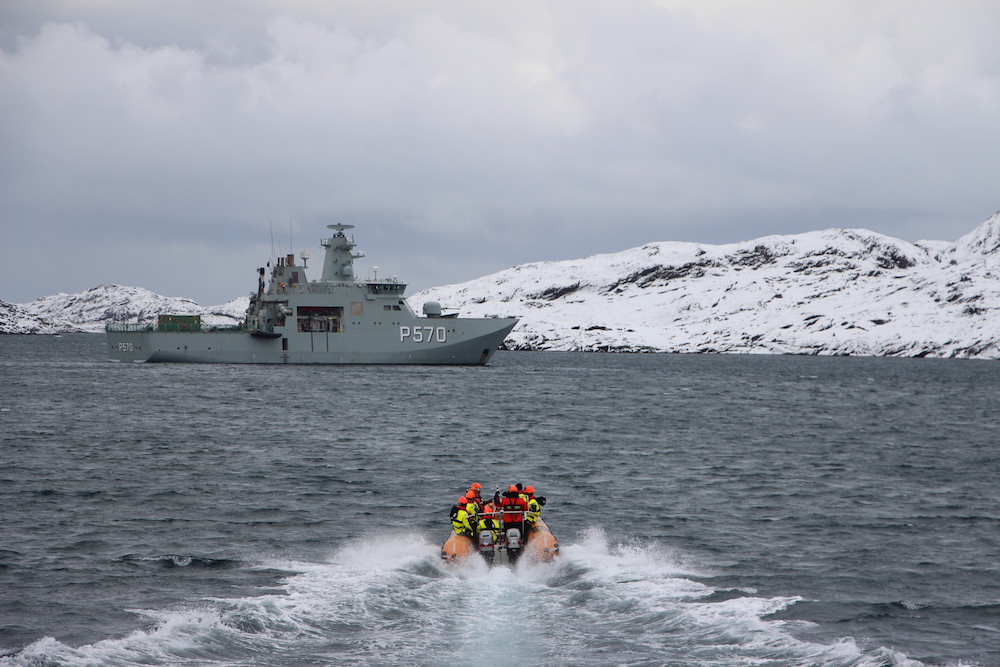Denmark should support an Arctic military forum, a Danish think-tank says
Tensions in the region are rising but addressing them now will keep them from getting out of control, academics say.

Denmark should respond to a growing great-power rivalry in the Arctic between the United States, China and Russia by seeking middle ground in which it continues to align itself with Washington, while at the same time seeking to de-escalate tensions in the region, Denmark’s leading foreign policy think-tank has recommended to that country’s foreign ministry.
The recommendation comes at a time when the Kingdom of Denmark (which is made up of Denmark, Greenland and the Faroe Islands) finds its traditional role of seeking to reduce security tensions in the region being challenged by an assertive American stance towards Russia and China, according to Mikkel Runge Olesen, a scholar with DIIS, which made the recommendation in report issued on Monday.
“Even though it is a matter of concern that Russia and China have stepped up their activities in the region, the biggest challenge for the kingdom will actually be the requests its allies make — relating to Chinese investment, better territorial surveillance and militarization,” Olesen said.
[More military activity may spoil the Arctic’s atmosphere of collaboration, warns a Danish report]
The recommendation suggests that Denmark’s alliance with America will allow it to influence Washington’s policy towards the region, but doing so will require that Denmark, Greenland and the Faroe Islands all have similar policies towards China, Russia and the U.S.
Differing interests in Copenhagen, Nuuk and Tórshavn may make that difficult, the recommendation warned. Unlike the EU and Norway, the Faroe Islands expanded trade relations with Russia after it annexed Crimea in 2014 and Russia is now a major market for Faroese salmon exports. Similarly, Greenland has shown itself more willing to accept investments from China than Washington and Copenhagen are comfortable with.
“Greenland and the Faroe Islands may have major economic interests in securing investments in infrastructure or resource extraction and in securing access to the Russian and Chinese markets, particularly for fish. If these interests come into conflict with the kingdom’s overall security interests and or its allegiance to other countries, then that would be a problem,” Olesen said.
[An Arctic treaty has been rejected by the region’s leaders. Again]
While Denmark should continue to work to keep tensions low by promoting the work of he Arctic Council and other organizations, it should not ignore military developments in the region.
The Arctic Council is currently not permitted address security issues; DIIS suggest that remain the case and instead suggests that Denmark support establishment of a forum that would take up security issues, an idea that has been rejected by lawmakers in Arctic countries in the past.
“Even though military activity in the Arctic is still below the levels we saw during the Cold War, a general military buildup is taking place, and there is an increase in the number of exercises that can lead to distrust and risks misunderstandings and unintended events.”
The DIIS recommendation comes as Denmark, Greenland and the Faroe Islands are working on an update of its Arctic strategy.